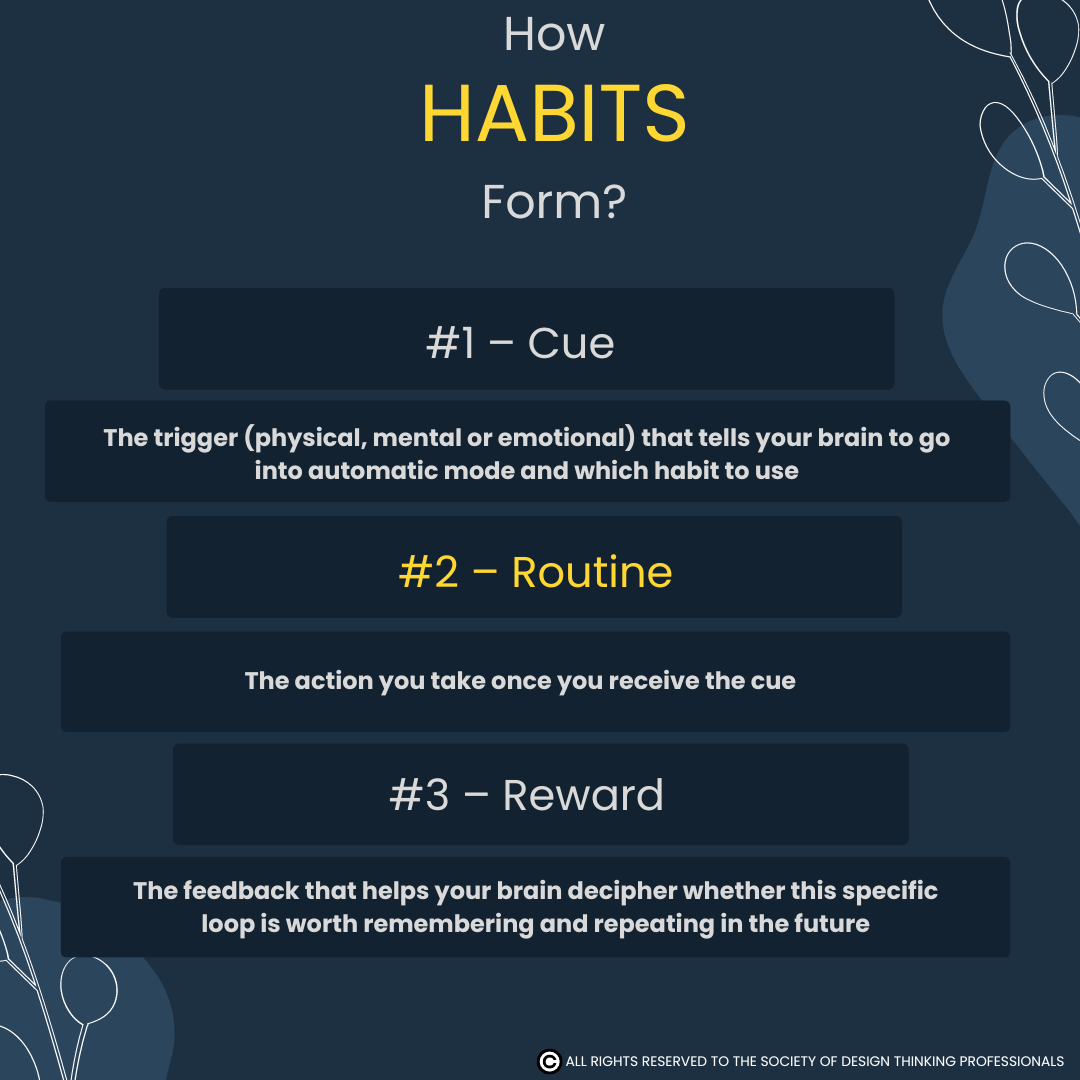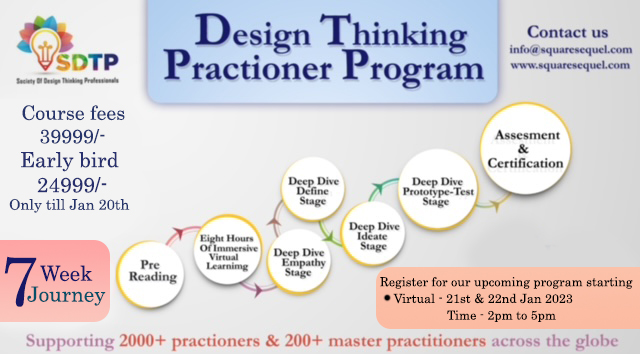Professionalism is about putting your best foot forward and treading the boards of your company well. Your ability to embody professionalism in the workplace is chiming with your work environment well, being more productive, and encouraging harmony among coworkers. Vaibhav feels to be on pins and needles whenever he thinks about his job interviews and the transition from college life to the professional world. So, he called out his uncle, Sivaranjan, a corporate honcho with extensive experience in the professional sphere. His uncle is explaining the nitty-gritty of the corporate world to help Vaibhav put his best foot forward.
Vaibhav seemed like daydreaming about the day he called his uncle when Sivaranjan snapped him out of the dream by saying, Vaibhav can you give me a brief summary of the topics we have covered so far?
Vaibhav said, Sure. We are past the myths and realities of professionalism, the power of effective communication skills, the importance of nonverbal communication – body language, power dressing, effective verbal communication, introduction to written communication, email etiquette, and the importance of values.
Great, last time I shared a valuable story with you, it’s time for one more story, said Sivaranjan.
Vaibhav nodded at his uncle’s words.
Vaibhav, I believe you know Elon Musk. He is best known for developing self-driving cars (Tesla) and building spaceships (SpaceX). He wishes to hack the human mind for us to live inside the Matrix (Neuralink). Although he is a 49-year-old, he is already more successful than a million average people combined.
There is no easy answer to prove the possibility of his success. It’s mostly due to his superhuman willpower. However, his success habits laid the most groundwork for him. To keep the ball in his court with being the world’s richest man he follows a jam-packed schedule. It is said that he clocks to work for 80-100 hours per week.
What do you think Vaibhav, what keeps him going and keeps his focus through and through? – asked Sivaranjan.
Habits! It is his habits that help him manage his time and priorities and give him the spur to soar high with success, Sivaranjan answered for Vaibhav. A few habits that he follows every day as a ritual are
- He is an early bird and makes sure to hit the hay early to have adequate sleep.
- His mantra is to eat to live and not the other way around.
- He barely uses his phone during work hours to give his undivided attention to his work.
- He is a voracious reader, and despite his busy schedule, he makes time for reading.
Studies show that reading improves comprehension and analytical skills. It not only stimulates the imagination but also the memory centers of the mind. It’s no surprise that Musk is regarded as one of the greatest innovators of all time.
See there Vaibhav, our habits take the biggest room in our lives, and if we work on them consciously, they can help us emerge as the individual we often dream about, said Sivaranjan.
What Are Habits?

Habits are behaviors and rituals that we perform as a matter of course, allowing us to do things like doing our daily chores or taking the same routes every day without thinking about it. Our unconscious habits free up resources in our brains for more complex tasks like problem-solving or deciding what to make for dinner.
We all have habits that we use daily. These habits can be classified into three types. The first category includes habits that we simply don’t catch sight of because they have been a part of our lives for as long as we can remember, such as tying shoelaces or brushing our teeth. The second category includes healthy habits that we work hard to establish, such as exercising, choosing a healthy diet, or sleeping enough. The last category of habits is like walking on thin ice, not good for us like overspending, procrastinating, or being remiss about things.
Vaibhav, we as humans carry a web of all categories of habits. According to Duke University researchers, habits determine more than 40% of what we do rather than decisions. This implies that we can change a significant portion of our lives simply by eliminating bad habits and replacing them with good ones. People who fully comprehend this have discovered wonderful new ways to improve their lives, explained Sivaranjan.
You look up any successful figure and you will discover that they follow a routine, or a set of building or productive habits to stay ahead of the curve.
Now, let’s understand why all the successful people in the world emphasize more on building habits, said Sivaranjan.
Payoffs Of Right Habits

We are all aware that developing habits takes time and effort.
You’ll need a strategy, accountability, commitment, grit, patience, and other qualities to succeed, and you’ll face challenges like laziness, procrastination, and overwhelm. As a result, it’s no surprise that many people give up too soon, while the rest don’t even realize they’re doing it.
So, with all of this talk about habits, you may be wondering, “What’s in it for me?” And why should you bother in the first place? Aside from feeling accomplished, cultivating self-discipline, and being more intentional about your thoughts and actions, here are five payoffs to developing and sticking to the right habits.
Pick the right habit and reach your goals
“Motivation is what gets you started, habit is what keeps you going.” – Jim Rohn
Whether it is about starting a business, writing a bestselling book, building a dream house, or being a successful professional. It is a long way to churning the mill as huge as your dreams. It is where habits, the right habits come into play as they are consistent, completely automated, and less challenging once you keep following them. Your path lights up with efficiency, effectiveness, and strategies with the right set of habits that could align with your thoughts and actions to lead you to your big goals.
Take your pick on the right habits and meet your higher self
Consider all of the successful business owners, writers, and CEOs you know. They didn’t get to the top of their fields quickly or easily. And they show up day in and day out even when they aren’t inspired, when they face challenges, or when they simply don’t “feel like it.” Rather than relying on spurts of motivation, becoming the person you most want to be can be much easier if you establish routines and habits to sustain you.
Picking the right habits means sticking with the right people
“Your net worth to the world is usually determined by what remains after your bad habits are subtracted from your good ones.” – Benjamin Franklin
Sticking with the right people eventually makes you think, act, and pick their habits. You may like the way they talk, present themselves, or their ingrained values. The way someone else inspires you and compels you to be like them, there’s no denying that what you do regularly (aka your habits) has an impact on those around you. Developing good habits is thus a surefire way to help or affect others and, more importantly, to set a benchmark for the people in your circle.
Pick the right habits and enrich the quality of your life
Certain habits, known as keystone habits, have the potential to influence multiple aspects of your life. These are linked to other good habits, implying that progress in one area has the potential to spread to others. Take exercise for example, which not only improves your health and fitness but also your productivity, time management, energy management, and mental health.
Furthermore, two or more habits combine to form routines—morning routines, evening routines, Sunday night routines, and end-of-workday routines—and it is these routines that help us be more efficient and effective, allowing us to have highly productive days on a consistent basis.
Pick the right habits and reap lifelong benefits
With all of the preceding advantages, these will not be one-time occurrences due to habit. Because habits are any activity that you do on a regular basis, you can continue:
- achieving goal after goal,
- being the person you aspire to be,
- assisting those around you, and
- improving your overall quality of life
You’ll feel more accomplished, develop self-discipline, and be more intentional, and thanks to the right set of habits, you’ll reap these benefits for years to come.
Wow, never paid much heed to my habits till now, chuckled Vaibhav in surprise. Now I know what I have to do to stay in the game, I would like to know how to form new habits that will get me through my future endeavors.
Sure, let the ship sail, said Sivaranjan.
What Does It Take To Form A Habit?
Our habits literally influence our lives. According to research, repetition drives roughly half of our daily actions. This is most likely why behavioral scientists and psychologists have spent so much time researching how to develop and maintain positive habits. Regular sleep and exercise, a healthy diet, an organized schedule, and mindfulness are just a few examples of practices that can improve our work, relationships, and mental health if done on a regular basis.
What if those things aren’t second nature to you? What is required to form a new habit? – asked Vaibhav.
Vaibhav waits for Sivaranjan to continue.
Habits are automatic behaviors that our brains have wired into them through repetition. We perform these behaviors less consciously as time passes. Charles Duhigg describes the Habit Loop in his book The Power of Habit:

Each habit’s outcome is stored in our brains. If the feedback is positive, the brain will respond automatically the next time the cue appears. As a result, the Habit Loop is formed, and the neural pathway for the habit is hardwired into our brains.
How long does it take for a habit to be formed? The entire habit-forming process only takes two to three weeks (14 to 21 days). And once a neural pathway for a habit has been established in our brain, it is permanent.
According to studies, if people are in the same environment, they will perform automated, unconscious behaviors the same way every time. Because all of the familiar cues and rewards are no longer present, changes in our routine or taking a vacation can be beneficial in breaking habits.
That means I should know what habit I need to inculcate in my life, then set a routine to establish its existence and follow that routine to get the reward, memorized Vaibhav.
Yes, this is exactly what it takes to get into gears, muffled Sivaranjan.
Fair enough, now that I know what it takes to form a habit, uncle, please walk me through the holy grail of forming productive habits.
Yes, let’s hightail it! – said Sivaranjan.
Ways To Form Productive Habits While Ousting Feeble Habits

Make a list of habits you want to procure in a long run
Sit in a quiet place, and think about your priorities, your short-term and long-term goals, and what you would need to achieve them.
- Have an upper hand in your work.
- Ace the race of reaching the ladder.
- Improve your relationships at the workplace.
- Be the reason people believe in humanity.
The best place to start is to review the common productive habits of successful entrepreneurs or leaders. Then incorporate those practices into your daily chores. Believe me Vaibhav, repetition is the key to your leading light.
Take note of your vestigial habits
Recognize the existence of a bad habit and then zero in on the specific behavior that needs to change.
Some people struggle with this, especially if the habit is unconscious. Here are a few pointers:
- Ask others for feedback on your behaviors in specific situations, or if they’ve noticed any habits you’re not aware of.
- Look for patterns in your behavior and pay attention to the routines you tend to follow at work.
- Examine your thought processes as well as your gut reaction to specific situations.
- Examine how you complete tasks, manage others and collaborate in groups.
Going through this exercise allows you to push back and avoid having your brain’s auto-pilot kick in.
Read between the lines and create connections between cues
Identifying the habit is all about getting to the bottom of the issue. You want to know what causes you (or an employee) to engage in an unwanted habit so you can disrupt that relationship and, eventually, break the habit.
Work backward to determine what acts as a trigger. Slow down when you notice yourself engaging in negative behavior and use your awareness as a signal to ask yourself: What is going on with me emotionally, mentally, physically, or socially right now?
Remove physical triggers as soon as possible. Don’t, for example, leave a distracting cell phone on your desk. Put it away so you’re not tempted to text or browse social media whenever you’re feeling overwhelmed with work.
Always keep a “Plan B” lock and load
Now that you’re aware of your habits and what causes them, you can confront and deal with them directly. Breaking a habit does not always require stopping action, however, substituting it for something healthier or more desirable.
When presented with a cue, consider what else you (or an employee) can do to improve the outcome. Instead of automatically complaining to a coworker when you’re stressed or angry, try a few minutes of deep breathing to relax.
Follow the cues for encouragement
Consider prompts to be positive cues. These are reminders to keep you on track with desired behaviors and to assist you in breaking any bad habits you may have. Set up an alert on your computer to complete this task 30 minutes before the end of each work day, for example, if you have trouble remembering to respond to emails each day.
Perseverance above all
Remember the two to three weeks it takes to form a habit? Breaking a habit, on the other hand, takes at least the same amount of time.
New brain connections must form, old brain firings must calm down, and new patterns must take time to replace the old. Don’t punish yourself (or others) for mistakes, or use them as justifications for quitting and reverting to bad habits. Take a breather!
Take things one day at a time, keep your eyes glued on the prize, and keep dreaming Vaibhav, it will take you to good places in life, said Sivaranjan.
I will uncle, smiled Vaibhav.
As we move forward into the unknown future of work Vaibhav, we can expect more context shifts to disrupt employees’ existing work habits. While this may appear daunting to organizations, it creates opportunities to assist employees in developing new, positive habits at work. On the personal front, it takes time to change behavior, so be patient and don’t be concerned about slip-ups. However, once you’ve instilled good habits in yourself, and kept any troublesome habits in check, your workplace will benefit significantly.
Amazing! I am stunned by the role of habits in our lives, they can literally make or break us. From now on I will keep a tab on my habits and work on improving or banishing them, as per their place in my life, shrieked Vaibhav.
I am so glad to have you as my student Vaibhav and proud to see you grow through these lessons of professionalism. It certainly is leaving its mark on you, exclaimed Sivaranjan.
Vaibhav hugged his uncle and thanked him for helping him establish his first step in the professional world.
https://andreiantoniu.com/moral-story-that-will-change-your-bad-habits/
https://www.productiveandfree.com/blog/benefits-of-habits
https://hbr.org/2021/02/what-does-it-really-take-to-build-a-new-habit
https://www.insperity.com/blog/how-to-form-habits/
https://www.insperity.com/blog/professionalism-in-the-workplace/
https://www.business-standard.com/about/who-is-elon-musk
https://pakwired.com/success-habits-of-elon-musk-you-can-apply-to-crush-it-in-your-life/
https://www.thepositivepsychologypeople.com/habits-to-happiness/
https://www.mindmeister.com/blog/wp-content/uploads/2018/10/Habits.png
Written By: Jimmy Jain
Edited By: Afreen Fatima
Society of Design Thinking Professionals









